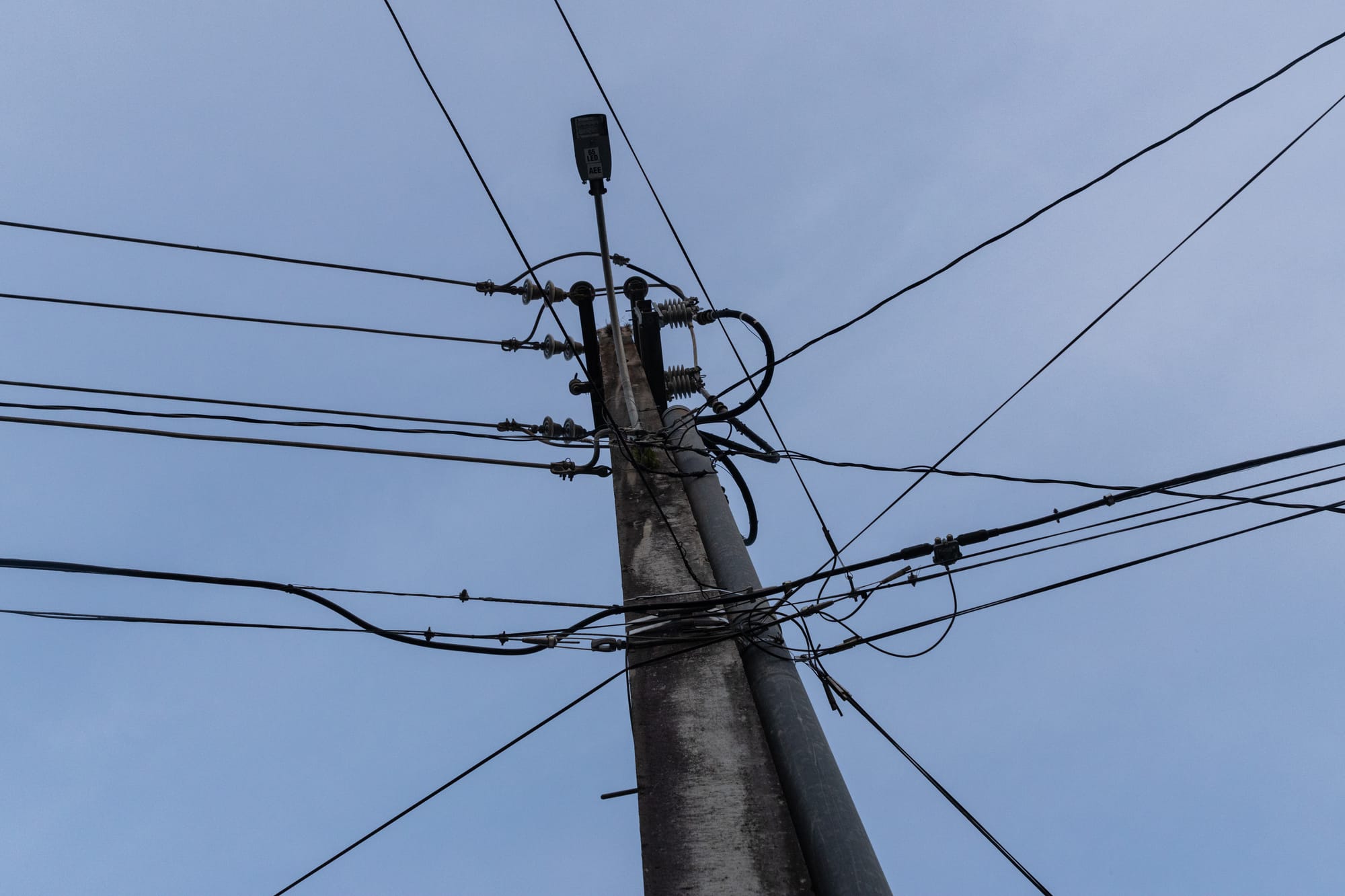Big Oil Wants Puerto Rico's $1 Billion Climate Deception Case to go Federal
Chevron filed a notice of removal to remand the Puerto Rican Department of Justice's $1 billion climate deception lawsuit to federal court, which could provide a more "industry-friendly" forum for the fossil fuel industry.

The Puerto Rican Department of Justice sued Big Oil in state court to the tune of a billion dollars to hold them accountable for their product’s role in worsening the climate crisis and fueling climate disasters that have decimated the archipelago. However, Chevron filed a notice of removal that relies on deep ties between the fossil fuel industry and the United States military, as well as two Puerto Rican climate RICO lawsuits, to move the lawsuit to federal court.
Chevron, one of the defendants in the lawsuit, bases the majority of its request to move from San Juan’s Court of First Instance to the District of Puerto Rico on one key factor: the federal officer removal statute (28 U.S.C. § 1442). Specifically, the motion relies on section (a)(1), which allows any person or company acting under a federal officer or agency to remand any civil action or criminal prosecution presented in state court to a federal court if it relates to acts done under the color of federal office.
“It is not an accident that the United States Department of Defense is the single largest consumer of energy in the United States and one of the world’s largest users of petroleum fuels. For over a century, United States policy has expressly recognized the fundamental strategic importance of oil and gas to the Nation’s economic well-being and national security,” reads the introduction of the 92-page notice of removal filed by Chevron on Aug. 30 of this year.
Totalling over a thousand pages, Chevron filed 94 exhibits tying the fossil fuel industry’s continued production with the U.S. military’s need for the U.S. to have the most lethal fighting force in the world. Producing specialized military fuels during World War 2 and the Korean War, developing mineral resources on federal lands, and managing the country’s strategic petroleum reserve are just a few examples the notice gives as the fossil fuel industry “acting under” federal office.

Even though Secretary of Defense Lloyd Austin has correctly characterized climate change as an “existential threat”, the U.S. Department of Defense is the largest institutional user of petroleum and largest institutional producer of greenhouse gasses, according to Brown University’s Costs of War Project. Between fiscal years 2001-2018, “war-related” emissions — including those in Afghanistan, Pakistan, and Iraq — were estimated to amount to more than 440 Million Metric Tons of CO2 between the fiscal years of 2001 and 2018. The American military consumed 22 gallons of fuel per soldier, per day, in Afghanistan, according to a 2009 Wired article.
Secretary Austin’s statement — wherein he acknowledges the problem yet continues to lead one of the organizations at the forefront of the crisis that has done little to curb its impact on the climate — betrays the facade of an organization who sell themselves as peacekeepers while hiding decades of blood and barbarism .
Citing the “Oil Shale, Tar Sands, and Other Strategic Unconventional Fuels Act of 2005”, the notice continues to emphasize how oil and gas have been at the heart of U.S. security policy for decades and, consequently, produced the legal circumstances in which they acted under when drilling for fossil fuels for over eight decades. The document omits the following two subsections of the act, which implore it be done in an “environmentally sound manner, using practices that minimize impacts,” which as I hope you already know, is definitely not happening.
For what it’s worth, Joe Bryan, DoD special climate advisor, has advocated for canceling the military’s national security exemption for emissions reduction. However, as Brenda Shaffer writes for Foreign Policy, “militaries will remain large consumers of fossil fuels for many decades to come, simply because today’s dominant forms of renewable energy—wind and solar power—are poor substitutes that don’t meet the operational needs of armed forces.”
American military presence in Puerto Rico has waxed and waned over time, but it has never been absent. Rusted-over tanks and unexploded munitions still haunt one island municipality. Meanwhile, San Juan served as the “perfect backdrop” for the largest counterintelligence focused exercise ever under the U.S. Army Reserve Command last year.
Chevron’s argument points out that Puerto Rico’s complaint necessarily “challenges the global [emphasis theirs] production, extraction, sale, and consumption of fossil fuels over the past several decades” and that “the complaint necessarily implicates numerous actions that have been taken under the direction and supervision of the federal government.”
Almost immediately after, the document brings up a similar case in Rhode Island. Nonetheless, the oil giant counters by writing the lawsuit's claims were solely limited to oil and gas “produced and sold… in Rhode Island” while Puerto Rico’s has a far wider reach. Puerto Rico does not have any proven reserves or production of fossil fuels, according to the U.S. Energy Information Administration.
A joint motion filed at the beginning of September has already confirmed the archipelago’s DOJ wants to keep the case in a state court. They will have to file their own motion to remand on or before Oct. 22. Meanwhile, the defendants’ opposition will be filed on or before Dec. 22.
If a District of Puerto Rico judge finds that the claims in the complaint establish federal jurisdiction, the case will be moved to federal court. However, if they do not, the case will be remanded to state court.
Chevron was never served by the Department of Justice, according to the notice of removal (not unsurprising to be honest with you). ExxonMobil, BP, ConocoPhillips, Shell, and TotalEnergies, and their Puerto Rico-based subsidiaries, who are the other defendants in the case all agreed to remanding the case to federal court, according to the legal document.

Late last year, a federal judge in the District of Columbia affirmed that the U.S. capital’s lawsuit against the fossil fuel industry should be kept in a state court after Chevron tried to remand it to federal court. Chevron attempted to use the federal officer removal statute to remand the case to federal court, but was denied because “there is simply no relationship between actions taken by the Companies’ predecessors in the 1940s and 1950s and the allegedly deceptive statements made by the Companies about climate change since 1980.”
The Puerto Rico DOJ’s lawsuit specifically mentions the defendants spread “incorrect information” about fossil fuels’ impact on climate change “since at least the late 1980s.”
Multiparty for Climate Deception
The second factor underlying Chevron’s attempt to remand the case to federal court lies in 28 U.S.C. § 1441(e)(1)(B), which states civil actions brought against defendants can be remanded to federal court if a defendant is party to a different action that arises from the same “accident” as this case could have been filed against them under the Multiparty, Multiforum Trial Jurisdiction Act.
Here, Chevron refers to the fact that 38 municipalities are suing many of the same defendants as the Puerto Rico DOJ case in two separate federal racketeering lawsuits, arguing the industry conspired to deceive the public about their products impact on climate change that supercharged damages from the September 2017 hurricane season. The first lawsuit, which initially consisted of 16 municipalities but has ballooned to include 37, was the “first-of-its-kind.”
I will not pretend to know which way a judge would decide in this case. Nonetheless, the immediate thing that sticks out to me between the cases is that the municipalities filed federal racketeering lawsuits while the DOJ’s arguments state the fossil fuel industry broke several state laws, such as the archipelago’s Environmental Public Policy Law. Additionally, while the municipalities’ lawsuits base their claims solely on the September 2017 hurricane season and its aftermath, the DOJ lawsuit merely uses Hurricanes Irma and Maria as examples of the effects that human-caused climate change has caused in Puerto Rico and might cause in the future.
From what I could find, most of the lawsuits where fossil fuel companies tried to cite 28 U.S.C. § 1441 to remand the case to state court, they argued using 1441(a) to varying degrees of success.
Federal courts are perceived as “industry-friendly fora for litigation of environmental claims,” according to an article from Law360.
“Oil companies have long sought to move such cases to federal court, where they believe national regulations such as the Clean Air Act could supersede local governments’ claims against them. But a string of circuit court and U.S. Supreme Court decisions have ruled that the cases alleging violations of state laws belong in state court, finally clearing the way for jury trials,” Alex Brown writes for Stateline.
There have been 86 climate lawsuits filed against the world's largest oil, gas, and coal companies, according to an analysis published by Oil Change International and Zero Carbon Analytics. Three categories of lawsuits have grown significantly in recent years: 38% of the cases are for compensation for climate damages, 16% are for misleading advertising claims, and 12% are for emissions reductions.
Speaking English in Colonial Court
Replicating the colonial dynamics between the U.S. and Puerto Rico, the District Court of Puerto Rico forces everybody involved to speak and write in English, even though 95.2% of the population speaks Spanish at home, according to the U.S. census. If Puerto Ricans want to present a document in District Court, they have to present a certified translation every single time and they have to speak English inside the courtroom (you can thank the 1917 Jones Act for that).
“It’s absurd to sit in a courtroom where the judge speaks English which at times is not the best, the clerk and personnel of the court all are primarily Spanish speaking, the lawyers who all speak English or Spanish, our clients who maybe speak English but are more likely to be Spanish speaking only, and the whole proceeding goes on in English,” Judith Berkan, a civil rights attorney, told Bloomberg Law in 2023.
Cases related to the Puerto Rico Oversight, Management, and Economic Stability Act (PROMESA) have played out in English in the US Court of Appeals for the First Circuit, a federal court with appellate jurisdiction over the District of Puerto Rico, over the last eight years. The Act, which was signed into law by former President Barack Obama in 2016 imposed an unelected Financial Oversight and Management Board for Puerto Rico (colloquially called “La Junta”) and ushered Puerto Rico into a bankruptcy-like process meant to cut its $72 billion debt.
While the move was applauded by many within the United States and Puerto Rican political sphere, in practice, PROMESA has inflicted harsh austerity-based measures that have radically degraded quality of life in the archipelago.

For example, when La Junta set up shop, it brought with it a plan to privatize Puerto Rico’s electrical system under the guise of fixing a historically troubled grid and public utility. So, transmission and distribution were privatized in 2021 and generation in 2023. Yet, Puerto Ricans experience daily blackouts, and their electric bills are coming in higher than ever. In fact, even though we are supposed to be running on 40% renewable energy by 2025, we are sitting squarely at 6%, according to the U.S. EIA, at the same time La Junta is suing the governor of Puerto Rico in federal court to end net metering, which, while a flawed and inequitable mechanism, has been a big driver of the archipelago’s rooftop solar boom.
Canceling the contract with Luma Energy, which controls transmission and distribution, has become so popular among Puerto Ricans that several gubernatorial candidates have made it part of their campaigns. However, Robert Mujica, the board’s executive director, rejected the proposition. Instead, he said they would step in to speed up projects because the Puerto Rican government has only spent $1.2 billion out of the more than $17 billion authorized by the U.S. Congress to stabilize and improve the grid.
Many of the projects currently being pushed by the private companies running Puerto Rico's electrical utility, the Puerto Rico government, and the unelected fiscal control board that rules over us tie Puerto Rico’s energy future to methane gas even though we are supposed to be moving towards renewables — shackling Puerto Rico to a product it is currently blaming for massive ecological degradation and disaster in three separate lawsuits.
In contrast to the lawsuits filed by the municipalities, which purposefully filed the case in federal court because they are arguing the fossil fuel industry broke federal laws, the Puerto Rico Department of Justice filed their case in state court because it did not want federal judges to intervene. The Puerto Rico DOJ did not want its case to be viewed by the structure's of its colonial master. As Richard Wiles, president for the Center of Climate Integrity wrote in Bloomberg Law, "after four years of failing to persuade a single judge that climate accountability lawsuits filed in state court, under state law, somehow belong in federal court, oil company lawyers are now making removal arguments in bad faith."
I am sure the aftermath of these decisions will one day come to play out in either state or federal court as well, maybe a decade from now, maybe longer. The only question is how much of Puerto Rico will be left when that happens.
Update: After publication, I changed the wording in the second-to-last paragraph to better reflect how the process would play out in federal court and link to an opinion piece by Richard Wiles, president for the Center for Climate Integrity, in Bloomberg Law.
Heavy Weather has uploaded the notice of removal and related documents to Courtlistener. You can also find it below:

